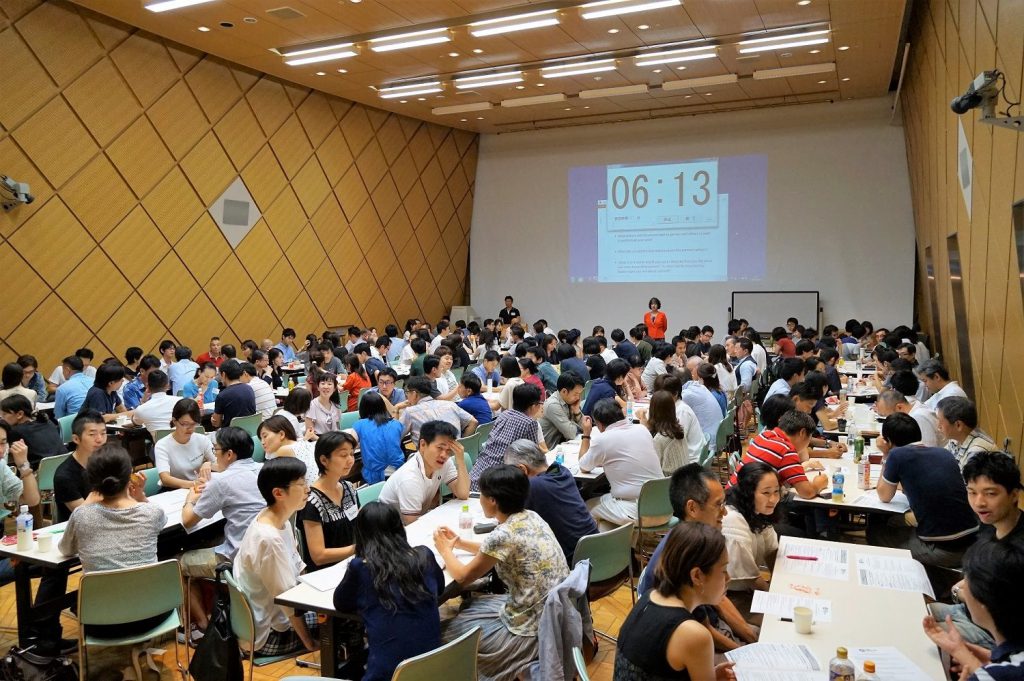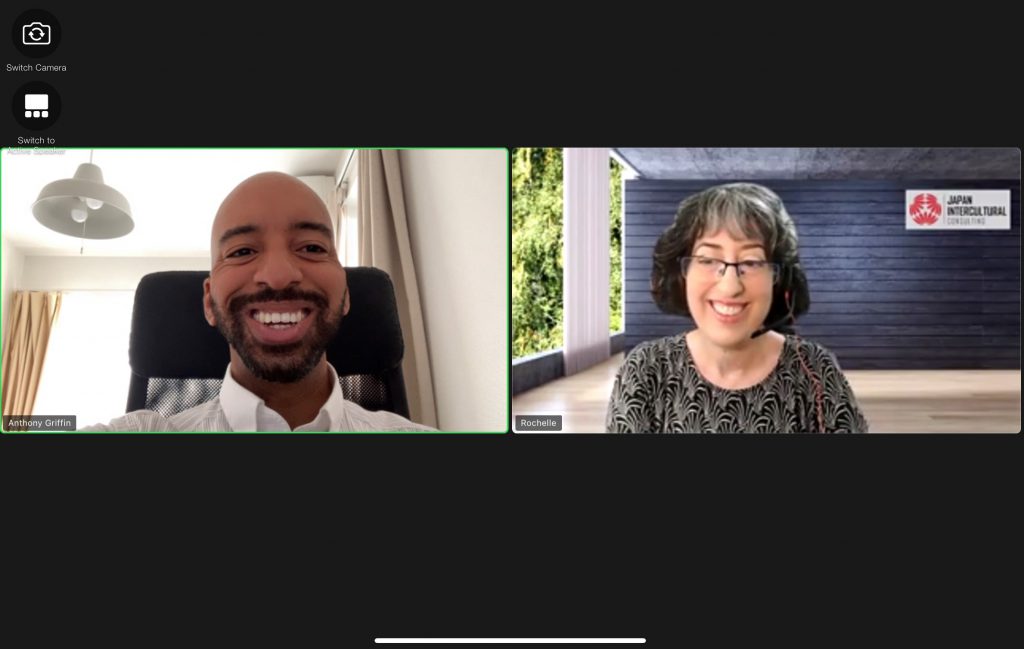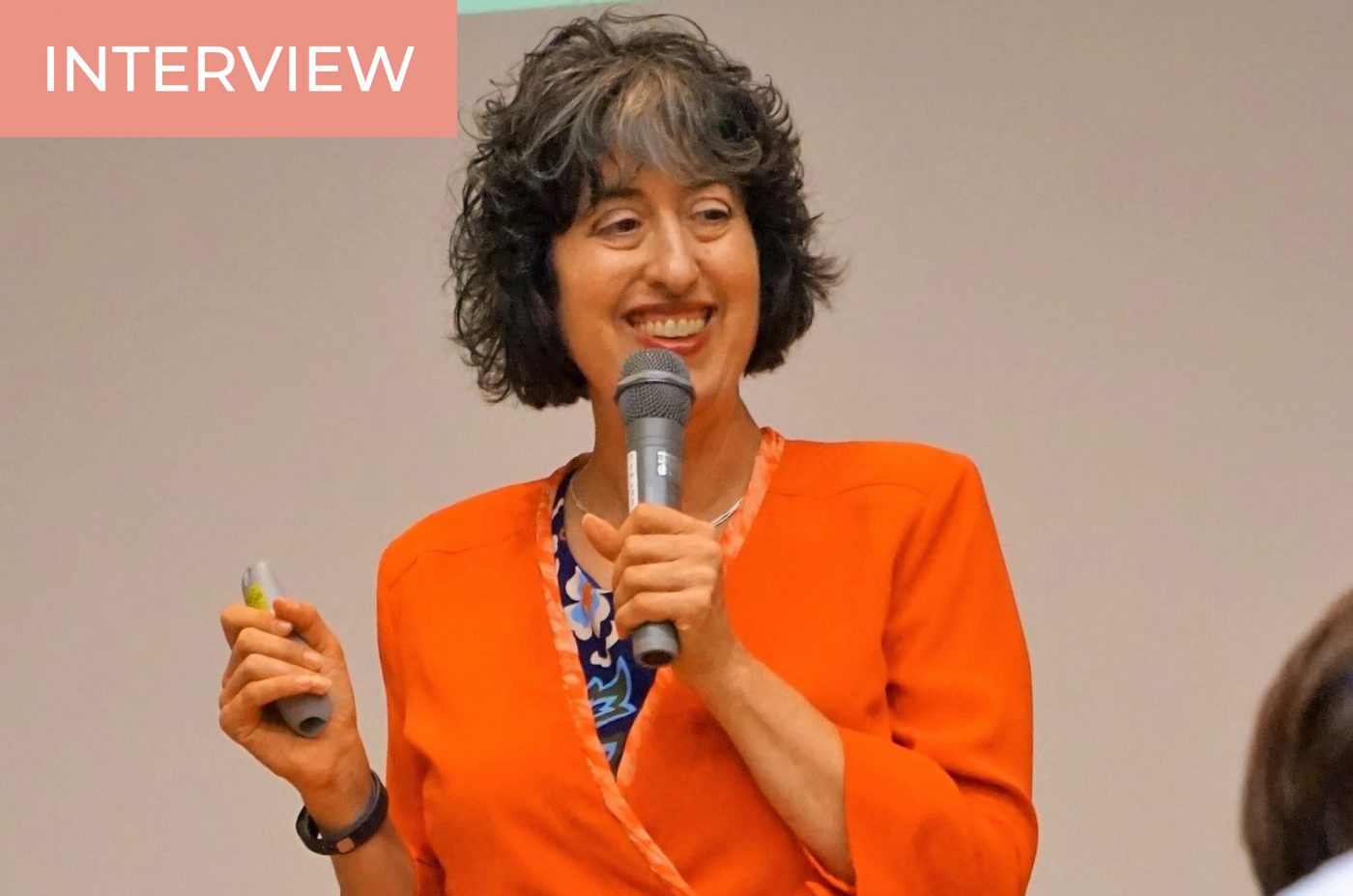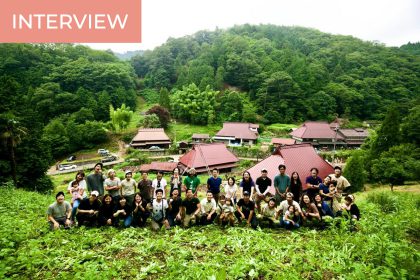Anyone with even the slightest interest in cross-cultural communication in Japan has likely read an article, liked a tweet, or watched a video featuring Rochelle Kopp, founder and managing principal of Japan Intercultural Consulting. Before founding her company, Rochelle accumulated a wealth of experience by working for U.S.-based international consulting firms and the Tokyo headquarters of a major Japanese financial institution. Through this experience, she discovered the intercultural pain points that multinational corporations struggle with and was driven to create a company that generates measurable results for clients throughout the world.
I’ve been inspired by Rochelle’s work since I arrived in Japan in 2009, so it’s a true pleasure to share her words of wisdom on a variety of topics including the impact of cultural misunderstandings, language mastery, and the future of Japan. Perhaps, most importantly, through Rochelle’s words, you too can learn how to turn your passion for Japan into your calling.
From Curiosity to Calling
How did you become so passionate about Japan?
In high school, I was exposed to Japan in several different ways. I had a few Japanese-American friends that I would often visit. Their parents were really nice, and they had cool Japanese things around the house. That intrigued me. Also, one year, a Japanese exchange student would often join me and my friends for lunch, and it seemed like every day she would have an interesting Japan-related item to show us.
Additionally, my hobby was doing artwork. I grew up in Chicago and I would often go to the Art Institute of Chicago, which has a wonderful collection of Japanese art. I also took classes in an artist’s studio when I was in high school, and there was a Japanese artist who also used the space. Her artwork was fascinating, and she was an interesting person to talk to. I grew up near the Chicago Botanical Garden, which had periodic ikebana exhibits. They were unlike anything I had seen before—they were so artistic and fascinating.
This kind of dates me, but the Shogun miniseries was airing when I was in high school. That was also the time when Star Wars came out, and we know that George Lucas was heavily influenced by Japanese culture. There are just so many ways that the U.S. was starting to pay attention to Japan culturally at that point. All of these things made Japan seem like a culturally fascinating place. In my sophomore year of college, I thought I’d try to learn Japanese. It was something challenging, and I thought it would be useful for a career in business as well.
Considering your career, company, and publications, you have essentially dedicated your life to Japan. What first inspired you to take your passion for Japan to the next level?
Well, I had put so much time and effort into learning Japanese that I really wanted to use it. After college, I went back to Chicago, and I got a job at an American consulting firm. They had a lot of global clients, including ones from Japan, when I interviewed with them. However, by the time I started working for them, they didn’t have any more Japanese clients. I don’t know what had happened during that six-month gap, but you’ll soon be able to guess what happened based on the story I’m about to tell.
During my first week, they asked me to sit in on a meeting with a group representing a Japanese potential client. My employer knew that I had an interest in Japan, and that was enough to get me invited to observe the meeting. However, it was not enough to have them consult with me beforehand on how to approach the situation. Everything that you could possibly do wrong in a Japanese sales meeting happened in this meeting. First, they decided to make it a working lunch. As you know, that’s typically not how things are done in Japan. Sure, you might occasionally have a meeting with bentos, but this firm brought in deli sandwiches. These weren’t even served individually on plates or in little boxes. Instead, they just laid out platters with heaps of different deli meats, bread, mustard and mayonnaise from which the attendees were expected to make their own sandwiches. There were also vats of potato salad and coleslaw, both loaded with mayonnaise. I will never forget the look of utter disgust on the faces of the potential clients. They must have been thinking, “Do you expect us to eat this?”
Then, it got worse. Instead of hiring a professional interpreter to explain the cutting edge operational research that the company’s work was based on, they pulled in an MBA student who happened to be Japanese. They didn’t give him materials to prepare with ahead of time. So naturally, he struggled to explain the abstruse concepts in the meeting. One of the heads of the firm became frustrated, and expressed this outright—another thing that is not typically done in Japanese culture. Once again, I could see the faces of the Japanese attendees, and they were not impressed.
So, as I sat there, I thought that this is the worst of both worlds. I knew enough to get in the room, but I wasn’t respected for my knowledge enough to be asked for advice ahead of time. Also my Japanese wasn’t good enough to be the interpreter, and I couldn’t step in and address a situation that was obviously going off the rails. So I thought, “I’m going to have to deepen my cultural knowledge and improve my language skills, or I’m just going to have to give up this Japan stuff.”
What advice do you have for people who want to follow in your footsteps and turn their experience with Japan and Japanese culture into their livelihood?
You have to combine your Japanese knowledge with a unique skill. Perhaps you have excellent writing skills. Then, you could become a translator. In my case, I have an MBA and a lot of consulting experience, so I have business skills that I combined with my Japanese knowledge. I’ve also met lawyers who also have Japan knowledge that they use. There are lots of different possibilities.
That resonates with me. I often tell people the same thing: make sure that you have a marketable skill in addition to your passion for Japan.
I would say that this is especially true now because there are more people who speak Japanese well. So, you have to differentiate yourself. I wrote an article for The Japan Times where I shared advice from recruiters and other experts in Japan. We discussed what Japanese knowledge you actually need to get a job in Japan. With the exception of a few high-demand fields, like software development, in most cases, you need to at least pass the JLPT N2 [Japanese-Language Proficiency Test]. That’s different than it used to be.
A Crash Course in Cross-Cultural Communication

Earlier, you provided some examples of cultural mistakes that foreign businesspeople make when interacting with their Japanese counterparts. Are there any other such mistakes that you’d like to highlight?
I have a long list of things, but I’d say that being impatient is not a good idea. I also always tell people to talk less and listen more. So those are the two common mistakes that people make—especially those coming from my home country, the U.S. We love to talk. This starts early in life with classroom discussions and show-and-tell. It’s very easy for us to just spew words out. However, if you’re busy talking, you’re not listening. This can be overwhelming in Japan, over and above the language barrier. In Japan, a lot of things are subtle, and you have to read between the lines. So, if you’re not paying attention, you’re going to miss a lot.
Absolutely. On the other hand, what would you say is the most important concept that someone should know before working in Japan or working for a Japanese company abroad?
I would answer that with, ichi ieba ju wo shiru, which means, “Hear one, understand ten.” That’s a phrase that Japanese people use to describe effective communication. The person who’s speaking only has to say 10%, and the listener figures out the other 90%. The burden is on the listener to put things together. Whereas, in the U.S., for example, the burden is on the speaker to be a good communicator. If you’re planning on coming to Japan, you will need to pay a lot more attention and listen more than you’re used to.
What behaviors traditionally associated with foreign cultures puzzle Japanese professionals?
Let’s talk about hansei, because that’s the top thing I hear about from Japanese people when I ask them about dealing with people from other countries. There isn’t a clear English definition of hansei, but it includes concepts of reflection, regret, and planning to do better, all rolled up into one. In Japan, when someone makes a mistake, they are first expected to apologize. Secondly, they have to provide a plan for how they’re going to fix the problem. For Americans in particular, we tend to avoid taking responsibility when problems happen. We often talk about all the reasons and extenuating circumstances other than ourselves that caused the problem. When Japanese people hear this, it simply sounds like we’re making excuses, and that can be very irritating—I’d say it drives people crazy.
Indeed, I was trained to apologize quickly and sincerely when I first started working in Japan, and that lesson has served me well. Can you give our readers some specific advice on how to learn the hansei process?
Just remember that if there’s a problem, don’t try to paper over it. Admit that there is a problem, and admit how you contributed to it. Then, talk about what you will do to make sure that the problem doesn’t happen again—give a proactive plan.
Language Learning for Life
Let’s revisit the topic of language learning. As someone who can read, write, and communicate fluently in Japanese, what concrete advice do you have for Japanese learners?
My situation is unique in that I’ve spent most of my adult life with the U.S. as my base, traveling back and forth to Japan. So, I’ve spent a lot of time doing work in Japanese, but not living in Japan. A couple of years ago I came back to Japan to make my base here again. Now that I’m actually living here, I realized that my vocabulary has a lot of holes in it. For example, I can talk at a very sophisticated level about business topics, but I just recently learned the word for bottle opener. So, I’m trying to fill in those kinds of holes.
The key to expanding your vocabulary is keeping and studying a list of every new word that you encounter. The first time I worked in Japan, I just used a notebook. Then, I used flashcards—the paper kind, connected with rings. Now I use an app called Anki. I also use a Chrome and Firefox extension called Yomichan. With Yomichan, you can click on new vocabulary words while browsing the web and, if you link it to Anki, those words will automatically be added to your flashcard deck. I also read a lot on my iPad and when I come across a new word, I look it up in a dictionary app called Japanese. This app also lets you add words to a list for review.
How much time should someone spend studying to reach the upper levels of Japanese proficiency?
That’s a good question. Right now I try to spend 10 to 15 minutes a day using one of the following: Anki, Satori Reader, WaniKani, or iKnow. That’s in addition to just using Japanese to do stuff throughout the day. If you’re trying to make rapid progress, you would probably want to be spending more time than that. However, I think the key is to study consistently and find a place for studying in your routine. Consider studying at a certain time of day, when you’re doing a certain thing—like commuting, for example. Find the best time to study and make that a part of your normal day.
Are you saying that establishing a routine is more important than trying to study for a certain number of hours a week?
Exactly. Even five minutes a day makes a difference. That’s because language is all about encountering new words or new things that you’re learning multiple times. You can get that in a few minutes a day, but you need to do it consistently. If you only study once a week, then you’re not getting that reinforcement.
By the way, another tip is to find something that you enjoy doing in Japanese. For example, I tweet in Japanese, and I’d like to be able to use a broader vocabulary. For my work writing, I feel very comfortable that I have the vocabulary I need, but if I’m tweeting about other topics, a lot of words and concepts that I don’t know come up. I want to have a greater working vocabulary at my disposal, and that’s what motivates me right now. Another benefit of tweeting in Japanese is that my Japanese Twitter followers are like my Japanese teachers—if I make an error, they will let me know!
The Future of Japan: A Single Solution for Multiple Challenges

Twitter is a good segue into the final topic I’d like to discuss. I follow you on Twitter and I often see your commentary on the social issues that Japan is facing. We’re both dedicated to Japan, but we have to admit that there are some serious challenges on the horizon—recovering from the pandemic, a declining birthrate, and a ballooning national debt, to name a few. What challenges are you most concerned about, and how would you recommend dealing with them?
I’m a little biased because this is my area of expertise, but I feel that almost all the challenges that Japan faces come down to the fact that Japan is not effectively utilizing its human resources. Everyone says Japan is a small country that doesn’t have many resources. However, one of the resources that Japan does have is a highly educated, diligent workforce. Unfortunately, so many people in Japan are not matched well to their jobs or are doing things that don’t interest them. They are underutilized and therefore unmotivated and disengaged. So, the challenge for Japan is improving how human resources are managed so that people have interesting, motivating jobs that utilize their skills.
This even applies to things like the birthrate. One reason for the low birth rate is the long working hours. Too much work makes it hard to meet a mate, figure out how to make family life work, or even simply physically find a chance to procreate. Long working hours and being exhausted don’t really do much for one’s fertility either, right?
It all comes down to human resource management. Long working hours mean that people aren’t being managed well. When you talk about the national debt and other macroeconomic issues, a lot of what’s behind that is a lack of productivity, which again comes down to how people are managed. So how Japanese companies manage their human resources is the key to creating a brighter future for Japan.




